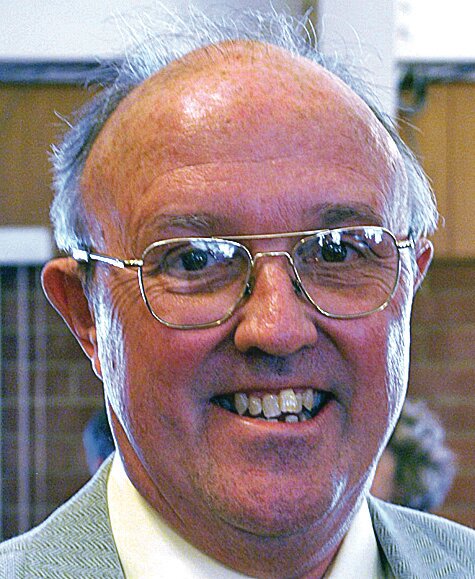Beveridge: How did Americans’ recent antisemitism begin?
Reid K. Beveridge has covered politics in Texas, Iowa, Wisconsin, Delaware and Washington, D.C. He resides near Georgetown.
Where did all this antisemitism come from in the United States of America?
Looks like some of those colleges where anti-Israel rallies and lockdowns are unfolding did a poor job of teaching recent world history — recent, if 1945 means recent. The demonstrators seem to have forgotten that 6 million Jews were exterminated by the German Nazis during the 1930s and 1940s.
They have forgotten, if they ever knew, about the horror the world experienced when U.S. Army troops liberated the Dachau and Auschwitz concentration camps, freeing the surviving Jews, many of whom were near-skeletons. And finding the gas chambers where millions were killed.
“From the river to the sea,” they chant. “Palestine shall be free,” they sing. Do they know or realize what this means? It means the extermination of the Jewish grandchildren of those World War II survivors. And, in addition, that inconvenient fact that Palestine has never been, and is not yet today, a nation. It is a place, at best poorly defined geographically, on the eastern end of the Mediterranean Sea.
And, to digress for just a moment, a further question: Which river? One presumes they mean the Jordan River, which defines the eastern boundary of the nation of Israel. But, to be clear, an advocate of “greater Israel” would say the Euphrates River.
Some commentators these days are comparing today’s campus unrest with the anti-Vietnam protests of the late 1960s and early 1970s. First, this snarky comeback: You have to be in your 70s or 80s to actually remember those demonstrations and riots. Many fewer actually served in the military during those years (the U.S. participation having been 1965-73).
Most of the key events worth comparing occurred in 1968, beginning with the Tet Offensive by the Viet Cong (the Communist insurgents in South Vietnam) in January that year and running through President Lyndon B. Johnson’s shocking decision to retire, and then the assassinations of the Rev. Dr. Martin Luther King Jr. and U.S. Sen. Robert F. Kennedy later in the spring and summer. And, finally, the Democratic National Convention in Chicago, convulsed as it was by tens of thousands of rioters.
Truth be told, those rioters had something to protest. Thousands of young men were being drafted into the military to fight in Vietnam in those years. More than 50,000 of us died. And, until the draft lottery was instituted in the 1970s, that draft could be quite unfair. Lots of young men tried to stay in college and receive an educational deferment, rather than submit to the draft.
Or, as a friend put it once: He didn’t want to be an Eleven Bravo. An 11B10 was and is a lower-ranked infantry rifleman. We have a word for that in the Army: bullet-stopper.
Today’s protesters come from different cloth. Somewhere along the line, they have become convinced that all Palestinians are victims and that the Jews of Israel are colonizers. At its most extreme, Israel is accused of apartheid. Apartheid, you will remember if you were socially and politically aware in the early 1990s, described South Africa, where the 25% of the population that was White ruled over the 75% of the population that was Black. That political construct fell apart when Blacks got the right to vote and elected the late, great Nelson Mandela president.
But apartheid in the Middle East means one views the Israelis as White and the Palestinians as people of color. This is critical race theory taken to its logical conclusion. It also harks back to the years immediately after World War II, when millions of European — especially German — Jews fled the aftermath of Nazi Germany to a new homeland in what is now Israel. And the Palestinians who lived there then did not resist at first. Palestine was lightly populated and had never been a nation state, having been ruled by the Ottoman Turks until 1919 and then by the British and the French.
Palestinian antisemitism is understandable in a way. To hear Palestinians tell it, they were driven from what is now Israel during and after the 1948 Arab-Israeli war that established Israel as a nation state — a nation that was quickly recognized by the United States, the British and the United Nations. Palestinians who fled their homes were then isolated to refugee camps in the West Bank and Gaza. Hamas arose in the 1980s, as a result of Muslim schools teaching that every Palestinian boy’s greatest goal in life is to kill a Jew.
But that doesn’t explain American antisemitism.
Reader reactions, pro or con, are welcomed at civiltalk@iniusa.org.







